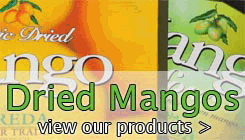
Aeta Indigenous farmers say they get only very low price per kilo for their mangos. Preda pays 100% more plus brings medical assistance.
How I admire the resilience and survival skills of the rural impoverished Filipino. It’s something to be celebrated and admired but the fact that millions of rural poor, especially many of the indigenous people, live at subsistence level is a cause for great concern, especially as we celebrate Earth Day this week. I went horseback riding to mark that event, not on pristine manicured lawns of the Manila polo club of the super rich who know little of harsh rural poverty, but to a remote Indigenous Aeta community in the mountains of Bataan.
The blazing sun beat down on our group of PREDA agriculturists along with the Fair Trade manager and Paul from Ireland. We rode small sturdy ponies with makeshift saddles and no stirrups that carried us up the steep mountain paths, along narrow trails and across the mountains. It was no joy ride I can tell you. But then two hours later under the Mango trees we had a welcome and an open-air meeting for the gathered families of Aeta Indigenous people. They told us of their hardships and their struggle surviving from day to day, planting and harvesting whatever would grow. Their children seldom went to school and there was no permanent teacher. The only one room, derelict building for miles around was supposedly a school. Some of the children had never been inside.
Earth day is everyday for them, their survival depends on the integrity of the environment. The Indigenous people know this all too well. They feel the global warming and the threats it brings to their lives. It’s a call for us urban dwellers to value our gardens, our fields and to reconnect with nature and realize how much we depend on every plant and rain shower to survive. The Indigenous people have lived that way for generations but environmental climate change threatens their already impoverished lives greatly.
They told us of the failure of the trees to flower, the bees that are disappearing, the violent storms that blow away their little bamboo and grass nipa huts as never before. Above all they told us of the way they are paid almost nothing for the produce they harvest and carry down the mountain wild mangos, sweet potatoes, bananas and rattan.
We had come to help them in their economic hardship. PREDA Fair Trade would buy all their wild mangos at the top fair trade prices, 100 percent more than what they were getting from the commercial traders we told them. They were beaming with delight at this good news. We explained that we would turn them into dried mangos and mango drinks then sell them to customers in the Philippines and abroad.
This is one way to protect and support the people who are most seriously affected by the loss of the natural ecology, the forest cover and wild life. Besides planting two thousand mango saplings every year, Fair Trade is giving back value to the forests and the people that care for them. We have a moral and spiritual bond to the planet that is the sources of all living things that our own survival depends upon.
Many urban dwellers have lost their spiritual bond to the earth when they lose a connection to the natural environment. They can loose their inner peace too. Our hike and visits to the many Aeta communities is to help them preserve the mango trees by giving them a stake in the market for their naturally grown fruit.
They are exploited and abused and they feel diminished, impoverished and oppressed by it. At present half of the mangos are not harvested and rot as the price given by commercial traders is not worth the hard work and effort of carrying them over the mountains. With PREDA Fair Trade they will get 100% higher payment for their mangos and the buyers of the PREDA dried mangos will be their supporters. They are now enrolled as members of the PREDA Small Mango Farmers Association and proud to belong it.
We brought rice and pork while they provided vegetables and cooked it in short bamboo sticks on an open fire and then served it on banana leaves. We shared it in the shade of the mango tree. One has only to walk and work in the burning sun to come to know the blessing of the cool shade of a tree.
Today many cry out to save the Earth, but they really mean to help and empower each other to save ourselves, our neighbors and Fair Trade in a more just society is one good way to do that.

